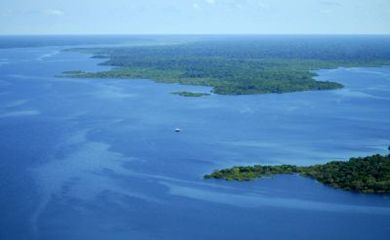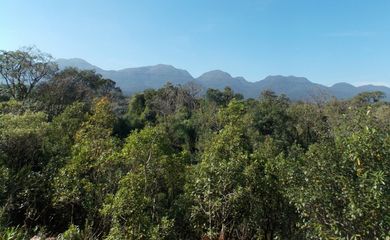Report released by UN praises Brazil for global warming reduction




The changes in the Brazilian Amazon in the past decade, and the contribution that they have made to slow global warming, are unprecedented,Taylor Nunes/Icmbio
A report released Thursday (Jun 5) during a United Nations (UN) meeting on climate change highlighted Brazil as an example of success in reducing deforestation and the emission of greenhouse gases.
The document, put together by the Union of Concerned Scientists (UCS), headquartered in the US, is entitled “Deforestation Success Stories: Tropical Nations Where Forest Protection and Reforestation Policies Have Worked,” and dedicates a chapter to Brazil, which is depicted as the country that achieved the world’s most significant reductions in deforestation and emissions. Sixteen other countries in Africa, Latin America and Asia are also mentioned as role models in forest protection.
The report shows that the Brazilian government reduced deforestation in the Amazon, the world’s largest tropical forest, through the creation of protected areas in the late 1990’s, subsequently intensified; and the moratoria granted in agreement with private companies on the purchase of soy and meat from deforested regions. “The changes in the Brazilian Amazon in the past decade, and the contribution that they have made to slow global warming, are unprecedented,” the document reads.
According to Doug Boucher, lead author of the report, the country’s scenario indicates that its economic development is not hindered by the reduction in deforestation. “For instance, soy and beef industries in Brazil thrive in spite of the moratoria aimed at preventing deforestation.”

Water lily at Guaporé River
The study highlights the role jointly played by the indigenous reserves in the preservation of the Amazon Rainforest, the initiatives launched by the states’ governments, and the action of the Public Prosecution Office, “an independent arm of government separate from the executive and legislative branches, which has the power to prosecute violations of the law.” International support is also mentioned, instanced by an agreement with Norway, whereby $670 million have been paid out in compensation for the lowered emissions.
As for the future, however, the report states that two changes that took place in 2013 raised doubts on the country’s continued success in climate change: the amendments to the Brazilian Forest Code, which provide amnesty for previous deforestations and the 28-percent rise in the 2012-2013 deforestation rate compared to 2011-2012.
The document further argues that it is too early to assess whether this growth will turn into a trend, but points out that, although deforestation has increased by 28 percent last year compared to 2012, it stands 9% below its 2011 counterpart, and 70% below the average registered between 1996 and 2005.

The reduction in Amazon deforestation has already made a very large contribution to combating climate change
“Brazil has inscribed its plan to reduce deforestation 80 percent by 2020 into national law (Government of Brazil 2009), but for continued progress to occur it will need to redouble its efforts at reducing emissions,” the study reads. “Meanwhile, its reduction in Amazon deforestation has already made a very large contribution to combating climate change—more than that of any other nation on Earth,” the document adds.
Translated by Fabrício Ferreira
Fonte: Report released by UN praises Brazil for global warming reduction





